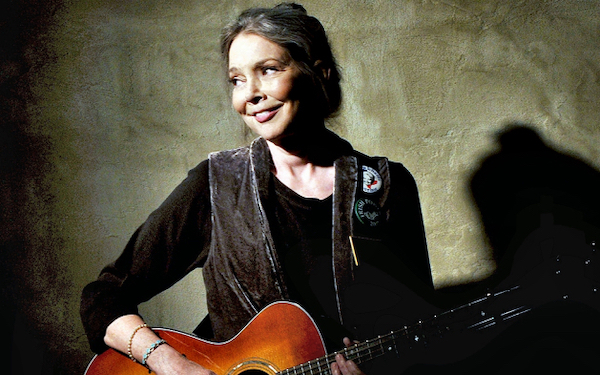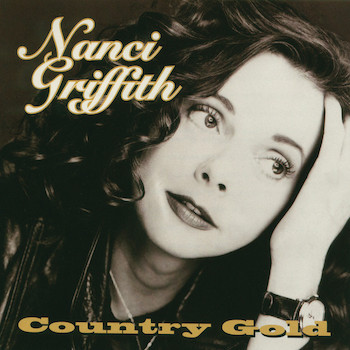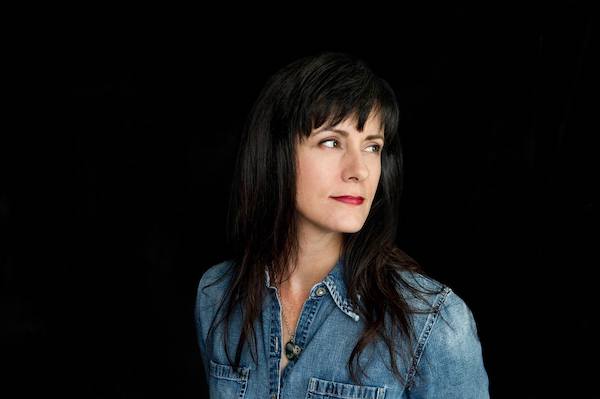For the Love of the Cover: Nanci Griffith and Keeping Folk Songs Alive, at Passim
By Daniel Gewertz
The talent at Club Passim’s Nanci Griffith night represented at least two generations: it was a nice, low-key salute to the singer/songwriter, who played the venue often in the mid-’80s.

The late Nanci Griffith. Photo: Passim.
At the 2021 Americana Awards show, held at the famed Ryman Auditorium in Nashville, Joe Henry and Boston’s own Aiofe O’Donovan sang “Gulf Coast Highway” in tribute to recently departed singer-songwriter Nanci Griffith. Two nights later, at the far humbler Club Passim in Cambridge, that same song was presented in an even more poignant rendition by Tracy Grammer and Jim Henry.
To quote the song’s second chorus: “And when she dies she says she’ll catch some blackbird’s wing / And she will fly away to heaven, come some sweet blue bonnet spring.”
Those two cities, Cambridge and Nashville, have little in common, but they do both figure prominently in the Texan troubadour’s career: Cambridge, the first northern city in which she found a fan base, and Nashville, Music City USA, the metropolis she grew to call home — where she prospered enough to buy a fine house, but never secured a desired spot as a cultural fixture of the city’s main industry, country music.
The local event was the latest in a series of occasional Passim Songwriter Nights. Each show delves into the work of a single writer, inviting local talent to perform one song apiece. Friday’s presentation — which allowed a socially distanced audience — began with the screening of six previously recorded videos, followed by eight live acts trooping on and off the tiny Passim stage. (“Gulf Coast Highway” was one of the video selections.) The talent represented at least two generations: a nice, low-key salute to Griffith, who played Passim often in the mid-’80s.
Contemporary American folk music is a genre nearly impossible to define and just as hard to keep healthy. Classical music has its wealthy benefactors, jazz its conservatories and clear-cut history. Folk is, sadly, still tied in the mind of the wider public to a single era — the early ’60s — and a single instrument, the acoustic guitar. When promising talents on the folk circuit break through to pop success, some have been known to drop the genre like it had cooties: like a high school dork drops his nebbishy friends upon admittance to the in-crowd.
Flourishing singer-songwriter scenes have been as rare as hen’s teeth since the Greenwich Village heyday of the early ’60s. You might count L.A. in the early ’70s. The NYC Fast Folk outfit of the late ’80s was a talent catalyst, with the late Jack Hardy at the helm, and Shawn Colvin and Suzanne Vega its best-known members. At Passim, with the late Bob Donlin’s approval, the same era saw the talent of Bill Morrissey, Patty Larkin, Cheryl Wheeler, and, of course, Tracy Chapman, gain a foothold. In Austin, Nanci Griffith was an essential member of a scene that included her friend Lyle Lovett. The Kerrville Folk Festival was a talent-breeder for a while. Guy Clark’s house in Nashville was another.
But these scenes were the exceptions, and they all were assisted by father-figures or organizations. A few enduring folk rooms in America have latched onto unconventional methods to ensure that the scene doesn’t shrivel. When Passim became a nonprofit organization nearly 25 years ago — eventually branching out with classes, grants, and special events like the Songwriter Nights — an early model must have been the Chicago Old School of Folk Music, which was born way back in 1957. Roger McGuinn was a banjo and guitar student. By the ’70s folk was shrinking, but Chicago’s scene boasted Steve Goodman and John Prine.
The Songwriter Nights at Passim are presumably designed as a reflection of the sort of song-spreading that occurred in Greenwich Village 50 and 60 years ago. Such New York folkies as Judy Collins, Dave Van Ronk, Odetta, John Sebastian and, most especially, Richie Havens, told me in interviews about the glory days of “the basket houses,” where one was paid by passing a basket, yet the real riches passed on were the brilliant new songs of one’s peers. “Someone would rush in and say ‘Have you heard the new one by Dylan or Ochs or Paxton?'” Havens once told me, “And a day or two later, you’d hear somebody else singing that brand new song.” It was a scene of songwriters, but also of strong interpreters.
Programming such Passim events as the Nanci Griffith night may be a “top down” way of promoting awareness of fine songwriting, but it is a good step, nonetheless. None of the 14 acts had met Griffith, and only a few had seen her perform. But the songs — and the voice — made an impact. Mark Stepakoff, who delivered a soulful version of “Listen to the Radio,” wrote this in an email: “It was really the voice — tough and twangy, but sweet and delicate too. There really wasn’t another quite like it on the roots scene … wistful, but tough and determined.”
The clear standout among the live acts was Louise Mosrie delivering a riveting “Late Night Grande Hotel,” a post-breakup song about a tenuous stab at independence. A repeating line is, “I am just learning how to fly away again.” But there are darkly revealing ones, too: “No one knows the heart of anyone else”; and “living alone is all I’ve ever done well.”
Mosrie also provided the closest thing to a first-hand anecdote about Griffith. Mosrie’s partner, Cliff Eberhardt, had written a song in 1993 that Griffith liked so much she offered to add harmony vocals, free of charge. She even traveled a long distance to the recording session. Eberhardt was thrilled. But her singing was quite off-key: specifically, very sharp. Eventually, the producer, with trepidation, hit the call-back switch. “Um, Nanci,” he said, “you might be a little bit sharp.” To which Griffith shot right back in her twangiest voice: “A little? If it were any sharper it’d poke your eye out.” It was a funny anecdote, but it also said a lot about Griffith and her unique combination of fragile-sweet and ornery-tough. Generous to her friends, sure. But also in such close contact with her faults she had no need to pussyfoot around them.

The clear standout among the live acts at Passim was Louise Mosrie. Photo: Facebook.
Griffith was well known as a songwriter who loved recording other writers’ works. On Friday, four of the 14 were covers, including a craggy, powerful version of the Sandy Denny classic “Who Knows Where the Time Goes” by Ric Allendorf, videoed on a farm: Allendorf leaning against a tractor, the sky gorgeous. Somehow, the wind didn’t affect the take. The song is associated with crystalline female voices (Denny, and Judy Collins), but Allendorf showed how a less pretty, simply strummed version — with well-phrased, expressive vocals — can communicate beautifully.
Also prerecorded was the premiere of a masterfully crafted animation video drawn, colored, and sung by Lisa Bastoni, with elegant production by Sean Staples. The song, “Across the Great Divide,” written by the late Kate Wolf, was the first selection on Griffith’s Grammy-winning 1993 album Other Voices, Other Rooms. Hearing Griffith’s version on the radio recently stunned Bastoni. “I set down the laundry basket I was carrying,” she wrote, “and cried for several minutes straight.” She’d known the song for years, but events in her life made it newly potent. From the album’s liner notes Bastoni quoted a comment from Emmylou Harris: “Songs need to be sung in new voices in places that they’ve never been heard before, in order to stay alive and have new life.”
The live portion of the Passim show also featured, among others, “Outbound Train” by the trio Noble Dust, with cello and trumpet, and the duo of Susan Levine & Doug Kwarter (The Lied To’s) finessing “It’s a Hard Life Wherever You Go.” Kwarter also added an emotive dobro solo to Rob Siegel’s solid version of Townes Van Zandt’s “Tecumseh Valley.”
The inclusion of other writers’ songs may have been, in some cases, a casual decision. But Nanci would’ve dug it.
For 30 years, Daniel Gewertz wrote about music, theater and movies for the Boston Herald, among other periodicals. More recently, he’s published personal essays, taught memoir writing, and participated in the local storytelling scene. In the 1970s, at Boston University, he was best known for his Elvis Presley imitation.
Tagged: Aiofe O'Donovan, Daniel Gewertz, Jim Henry, Louise Mosrie, Mark Stepakoff, Nanci Griffith, Passim

Thank you for sharing the details of this event, Daniel. I wish I’d been there. Maybe there will be a similar gathering in the Dallas area. It’s been a long time since I’ve enjoyed a few hours with like-minded people.